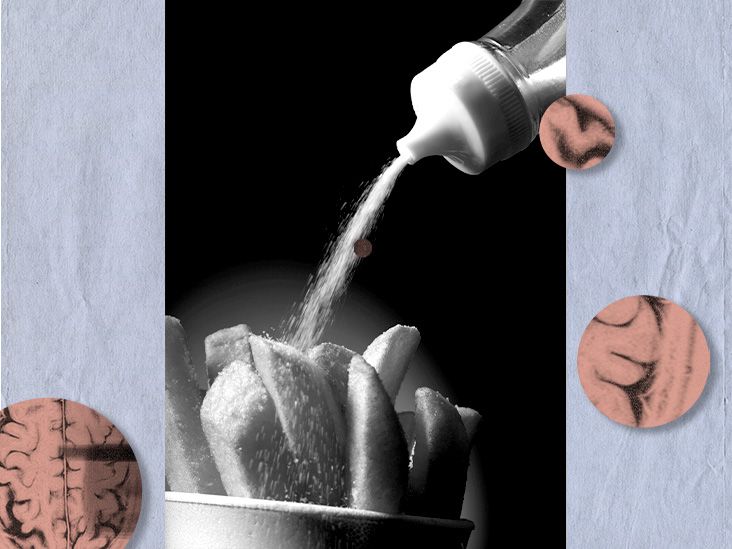Brixadi (buprenorphine) is a brand-name injection that’s prescribed for opioid use disorder. As with other drugs, Brixadi can cause side effects, such as injection site reactions and respiratory depression.
Brixadi has a boxed warning. A boxed warning is the most serious warning from the Food and Drug Administration (FDA). For details, see the “Side effect specifics” section.
Brixadi can cause certain side effects, some of which are more common than others. These side effects may be temporary, lasting a few days to weeks. However, if the side effects last longer than that, bother you, or become severe, be sure to talk with your doctor or pharmacist.
These are just a few of the more common side effects reported by people who took Brixadi in clinical trials:
- injection site reactions, including pain, discoloration, and itching at the place where Brixadi was injected
- headache
- constipation
- nausea
- insomnia
Mild side effects can occur with Brixadi use. This list doesn’t include all possible mild side effects of the drug. For more information, you can refer to Brixadi’s prescribing information.
Mild side effects that have been reported with Brixadi include:
- constipation or diarrhea
- headache
- injection site reactions, including pain, discoloration, and itching at the place where Brixadi was injected
- insomnia
- joint pain
- nausea and vomiting
- upper respiratory infection, such as the common cold
- urinary tract infection (UTI)
These side effects may be temporary, lasting a few days to weeks. However, if the side effects last longer than that, bother you, or become severe, be sure to talk with your doctor or pharmacist.
Note: After the Food and Drug Administration (FDA) approves a drug, it tracks and reviews side effects of the medication. If you develop a side effect while taking Brixadi and want to tell the FDA about it, visit MedWatch.
Brixadi may cause serious side effects. The list below may not include all possible serious side effects of the drug. For more information, you can refer to Brixadi’s prescribing information.
If you develop serious side effects while taking Brixadi, call your doctor right away. If the side effects seem life threatening or you think you’re having a medical emergency, immediately call 911 or your local emergency number.
Serious side effects that have been reported and their symptoms include:
- adrenal insufficiency, which may include symptoms such as:
- fatigue or extreme tiredness
- muscle weakness
- central nervous system (CNS) depression, which may include symptoms such as:
- feeling restless, agitated, or disoriented
- difficulty walking, driving a car, or operating machinery
- liver-related side effects, including hepatitis, which may include symptoms such as:
- jaundice (yellowing of your skin or the whites of your eyes)
- fatigue
- orthostatic hypotension (a drop in blood pressure when standing or sitting up), which may include symptoms such as:
- feeling dizzy or lightheaded when standing or sitting up
- fainting, which may lead to broken bones, concussion, or other injuries
- serotonin syndrome, if Brixadi is used with certain other medications; symptoms can include:
- hallucinations
- rapid heartbeat
- withdrawal, if Brixadi is injected in someone who is physically dependent on opioids, which may include symptoms such as:
- restlessness or anxiety
- muscle aches
- respiratory depression*
In some cases, if Brixadi is injected intravenously (into a vein)*, it may be fatal, and there is a risk of death.
* For more information about this side effect, see “Side effect specifics.”
ALLERGIC REACTIONFor some people, Brixadi can cause an allergic reaction.
In general, symptoms of an allergic reaction can be mild or serious.
Ways to manage
For mild allergic reaction symptoms, such as a mild rash, call your doctor right away. They may recommend treatments to help manage your symptoms. They’ll also let you know whether you should keep taking the medication.
For severe allergic reaction symptoms, such as swelling or difficulty breathing, call 911 or your local emergency number right away. These symptoms require immediate medical care because they can become life threatening. If you’ve had a serious allergic reaction to Brixadi, your doctor may recommend taking a different medication instead.
Brixadi may cause several side effects. Here are some frequently asked questions about the drug’s side effects and their answers.
How do the side effects of Brixadi compare with those seen in Sublocade?
Like Brixadi, Sublocade is an injection used to treat opioid use disorder. And like Brixadi, Sublocade contains buprenorphine. As a result, these medications cause similar side effects.
Shared side effects of Brixadi and Sublocade include:
- injection site reactions, such as pain or swelling at the site where the medication is injected
- respiratory depression
- central nervous system (CNS) depression
- adrenal insufficiency
- allergic reaction
And both Brixadi and Sublocade have a boxed warning about the risk of death if the drug is injected intravenously. (See the “Side effect specifics” section for more information.)
If you’d like to learn more about Sublocade side effects, talk with your doctor or pharmacist. They can also tell you more about how Brixadi and Sublocade compare.
Is Brixadi safe for older adults?
Maybe. Clinical trials of Brixadi did not include a higher number of older adults (age 65 years and older) to know for certain whether older adults are at a higher risk of side effects if they receive Brixadi.
However, older adults are more likely to have medical conditions, such as liver or kidney problems, that can increase the risk of side effects of Brixadi. Older adults are also more likely to take multiple medications, which can raise the risk of certain Brixadi side effects or the risk of interactions with Brixadi. Due to this, doctors may be more cautious while prescribing Brixadi to older adults.
Talk with your doctor or pharmacist if you’d like to learn more about the safety of using Brixadi based on your medical history and other factors, such as other medications you may take.
Learn more about some of the side effects that Brixadi may cause. To find out how often side effects occurred in clinical trials, see the prescribing information for Brixadi.
Risk of death if Brixadi is injected intravenously
Brixadi has a boxed warning about the risk of death if Brixadi is injected intravenously. A boxed warning is the most serious warning from the Food and Drug Administration (FDA).
Brixadi should not be injected into a vein, intramuscularly (into a muscle), or intradermally (into the skin), as it forms into a crystal gel upon contact with body fluids. This can lead to side effects such as blood clots, including life threatening pulmonary embolism (blood clot in the lungs).
What you can do
Brixadi should only be given by a qualified healthcare professional.
Due to the risk of death if Brixadi is inappropriately injected, Brixadi is only available through a risk evaluation and mitigation strategy (REMS) program. Healthcare professionals must be certified through the REMS program to prescribe and inject Brixadi. You can learn more about the Brixadi REMS program by visiting the Brixadi REMS website, calling 833-274-9234, or talking with your doctor.
Talk with your doctor or pharmacist if you have questions about this warning.
Respiratory depression
Respiratory depression is a rare but serious side effect Brixadi may cause. It’s not clear if this side effect occurred in clinical trials of Brixadi, but it’s possible based on how the drug works.
There are reports of life threatening or deadly respiratory depression since Brixadi was approved; these incidents have primarily happened when:
- buprenorphine (the active drug in Brixadi) is used with alcohol, benzodiazepines such as alprazolam (Xanax), or other medications that can cause CNS depression
- buprenorphine is inappropriately self-injected (Brixadi is only given by a healthcare professional and is not meant for self-injection)
Symptoms of respiratory depression include:
- atypical breath sounds, such as a whistle or crackle while breathing
- slow, shallow breathing with little movement in your chest
- feeling confused or disoriented
- lethargy or fatigue
Certain factors can increase your risk for respiratory depression as a side effect of Brixadi, including:
- having a breathing condition, such as asthma or sleep apnea
- taking other medications, such as benzodiazepines, that can cause respiratory depression
What you can do
Respiratory depression is a medical emergency that requires immediate treatment.
If your doctor prescribes Brixadi for you, ask them about how you can access naloxone. Naloxone is a medication that’s available over the counter that can treat respiratory depression should it occur during your treatment. Note that 911 or your local emergency service should be contacted in the event naloxone is used to treat respiratory depression, as you’ll still need treatment at a hospital or emergency room.
Below is important information you should consider before taking Brixadi.
Brixadi has a boxed warning. A boxed warning is the most serious warning from the Food and Drug Administration (FDA). For details, see the “Side effect specifics” section.
Other precautions
Before taking Brixadi, discuss your health history with your doctor. Brixadi may not be right for you if you have certain medical conditions or other factors affecting your health. Be sure to talk with your doctor if any of the following apply to you:
- Addison’s disease, or other causes of adrenal insufficiency
- breathing condition, such as asthma
- depression, or other mental health conditions
- gallbladder condition, such as chronic cholecystitis
- heart failure
- kyphosis or scoliosis (curves in the spine that can affect breathing)
- liver condition, such as liver failure
- hypokalemia (low blood potassium level)
- past brain or head injury
- allergic reaction to latex
- previous allergic reaction to this or a similar drug
- pregnancy
- breastfeeding
- alcohol consumption
Disclaimer: Medical News Today has made every effort to make certain that all information is factually correct, comprehensive, and up to date. However, this article should not be used as a substitute for the knowledge and expertise of a licensed healthcare professional. You should always consult your doctor or another healthcare professional before taking any medication. The drug information contained herein is subject to change and is not intended to cover all possible uses, directions, precautions, warnings, drug interactions, allergic reactions, or adverse effects. The absence of warnings or other information for a given drug does not indicate that the drug or drug combination is safe, effective, or appropriate for all patients or all specific uses.


